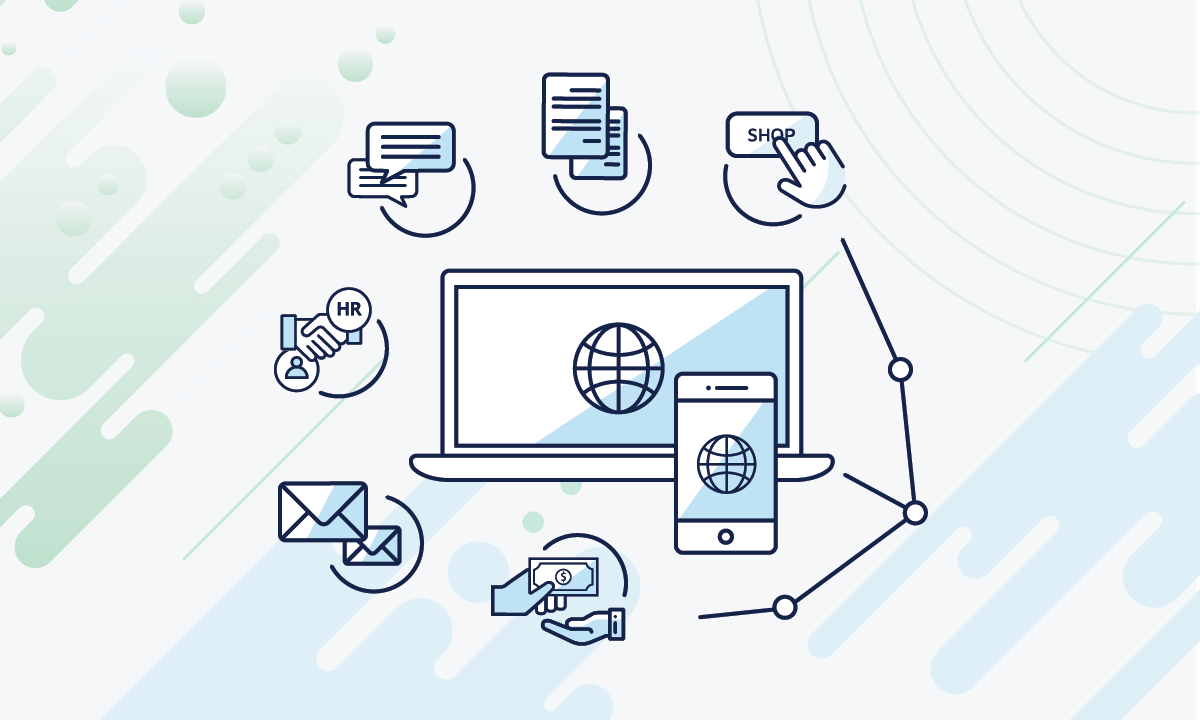
Work has grown considerably more complex in recent years. Our fast-paced, high-pressure work environment can be attributed to evolving technology. Increased technological innovation has resulted in 24-hour working shifts and mounting expectations.
Our tasks have become more collaborative, necessitating greater coordination, conference calls, and meetings. We are now bombarded with a never-ending succession of diversions from our smartphones’ vibrations and alerts.
No one is perfect, and everyone makes mistakes. But some people are able to learn from their slip-ups and become more productive as a result.
If you’re looking to increase your productivity, take a look at these productivity tips from professionals who have mastered their jobs. You may be surprised by what you learn!
Let’s dive in-
Top 9 Productivity Tips from People Who Mastered Their Jobs
Make a to-do list

Use a little of your mental energy each day to create a simple, actionable list of things you need to do that day. If something comes into your head, jot it down and get it out of your head.
By getting these tasks out of your mind, you’ll clear up space for new ideas and keep yourself focused on what really matters. If a task feels overwhelming, break it down into smaller pieces.
Try breaking each large project or task into smaller chunks, which will make them easier to manage (plus, each individual might feel more rewarding).
Pre-plan your schedule

Now that you’ve written down a list of tasks, you can start pre-planning your schedule. Based on how long each task is estimated to take, determine which days and times will work best to complete them.
Depending on how much time you have, that may mean making your schedule week by week, day by day, or even hour by hour as it will also help you know your total work weeks in a year (it sounds crazy, but it works). Use colour-coding or highlighters to differentiate between what needs to be done now and what can wait until another time.
Find ways to ensure that nothing gets lost in all of these ideas, like making one dedicated place for lists or putting sticky notes on your computer monitor. No matter how you do it—just remember that planning ahead is key when it comes to productivity!
Focus on one thing at a time

Multitasking seems like a good idea—and it sometimes is—but trying to do multiple things simultaneously can be disastrous in many situations. When you’re trying to get a lot done, focus on one thing and then move on when it’s complete. This will help you avoid being overwhelmed by having too much going on at once.
If you find yourself juggling too many things and making no progress, ask for help or put one item aside until another project is complete. It may take longer, but getting things done more effectively is far better than floundering through all your tasks without achieving anything of substance.
Have A Habit of Doing Instead of Thinking About Things

Develop a habit of reviewing your to-do list before sitting down at your desk. Make sure you understand what needs to be done and then immediately set about doing one thing. When you’re in doing mode, it’s easier for your brain to stop thinking about everything else on your list. You can also write each task on a sticky note and tack them up on a nearby wall so they’re always in front of you.
Then plough through them one by one until they’re all complete. Once you’ve done your first task (and accomplished something), take a breath and repeat. Just make sure there are no distractions—unplug phones, turn off Facebook alerts, etc.
To keep things organised while prioritising tasks, make two lists–one with high priority tasks and another with low priority tasks–and stick with those priorities when planning out how you’ll spend your time every day.
Are you looking to monitor employee productivity using AI-Technology? Do you have a remote workforce?
Sign up to try the best AI-enabled employee productivity tracker for remote employee monitoring to get the desired results here-
5) Tame Your Email Addiction

Email is one of our most important professional tools, yet it can be fairly disruptive. Here are some productivity tips for using email more productively:
a. Use a two-minute rule: Whenever you check your email, use two minutes or less to get back to what you were doing before. Having a regular schedule also makes things easier for your team and clients because they know when to expect responses from you.
b. Try to establish no email times during your day—or even whole day if possible: If checking your inbox every 15 minutes still feels excessive to you, try going on complete email fasts where you shut down for an entire day. Just make sure that others on your team know about it, so nothing falls through the cracks!
c. Block off specific hours at work: As silly as it may sound, try scheduling specific hours each day and week during which you’re allowed to check or respond to emails – without worrying about cramming them in around client calls, project deadlines, etc.
d. Take a quick break between tasks: Whenever possible, don’t let yourself sit at a computer all day answering emails—and no phone calls!
6) Schedule Your Workday Properly

To be more productive, you should schedule your day—not procrastinate. While it may seem intimidating at first, putting your day on paper can help you better understand how much time you have and what kind of tasks you want to complete.
Once you’ve written out your goals for each workday, block off a few periods in which you plan to accomplish those tasks; if things don’t work out, feel free to move them around.
Regardless of your career, it’s always a good idea to set goals for yourself at work. By tracking your accomplishments and keeping tabs on your progress towards key projects, you become familiar with what is going right and what needs improvement. While some workplaces may have established metrics for performance evaluations, other companies may ask their employees to set annual goals.
It hardly matters what type of organisation you work for; setting goals is an essential part of personal growth—not just in your job but in life as a whole.
7) Don’t Multitask While You Work

A recent study found that people who multitask were shown to have lower brain activity in their frontal lobes, which is responsible for memory and learning. Think about it—we’re all easily distracted by our phones, e-mail, Twitter feeds, etc. When we let these things pull us away from our work, it’s easy to lose focus and stop making progress on meaningful tasks.
The next time you start your work, try putting your phone on silent/vibrate and turning off any notifications. When a message does come through, see if you can send a quick reply and get back to work as soon as possible.
This way, you won’t be tempted to dive deeper into other messages or Facebook statuses right after. Instead of avoiding your to-do list until tomorrow, be OK with checking them off one at a time today!
8) Take Breaks Every So Often

We’re only human, so it’s easy to get caught up in our duties. That means that we need a break once in a while. Take frequent breaks at your job every so often and give yourself enough time to breathe.
Most likely, you’ll be more productive when you come back than if you tried staying glued at your desk for hours on end. It is good to stand up after sitting for a certain amount of time.
The scientific benefits are undeniable; increased blood flow in the body and decreased risk of serious health problems make it well worth it.
Plus, if everyone takes short breaks every now and then instead of staying hunched over their desks all day long, they might even avoid back problems!
9) Know When To Ask For Help

You might get lost in your head and feel like you have to do everything yourself. But if there are certain aspects of your job that are taking up too much time, ask your manager or someone else in an executive position how they would handle it differently. Perhaps you’ll learn a new, better way of doing things. You may even end up delegating it to another person entirely! All in all, don’t be afraid to ask for help.
If you approach your superiors with humility and politeness, chances are you won’t hear a no too often. And yes, people will know when you’re asking them out of laziness. Don’t fall into that trap—there’s nothing wrong with acknowledging your limitations!
The key is to seek other perspectives without expecting everyone to do your work for you. Just by asking one question, you could change how quickly you finish tasks and how satisfied you are at work.
Make sure no stone goes unturned: There is always something more we can be learning or improving upon—something to keep us sharp and striving towards continuous improvement.
Closing Thoughts
While mastering your job is certainly no easy task, it’s definitely doable with the right tools and a bit of effort. We hope that our productivity tips for work have given you some ideas to streamline your workday and increase your efficiency.
If you’re searching for more advice or want to learn about how business intelligence can help take your organization to another level. You can request a free demo to try the best employee productivity tracking software that helps people master their jobs.
What other productivity tips do you have up your sleeve? Please let us know!
Thanks for reading!!
Author Bio: Meera Nair is a workforce management Consultant and talent recognizer working with Workstatus. In her 16 years of experience in the field of resource management, she has been helping businesses to automate employees and workflow management.
Linkedin Profile: https://www.linkedin.com/in/meera-nair-982a61165/








